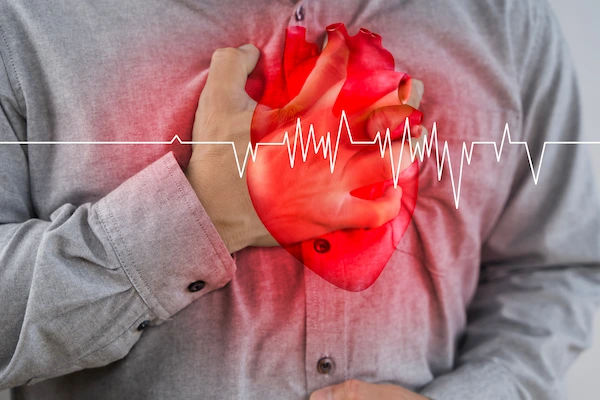- Male
- 55 Years
- 22/01/2025
I'm a bit worried about my dad. He's 55, has been a chain smoker for a while, but otherwise, he's in shape with no blood pressure or sugar issues. However, his LVEF is 25-30. Could you please guide me on what steps I should take? I'm especially looking for advice on diet, lifestyle, medicines, and maybe some yoga practices that could help him out.
Answered by 1 Apollo Doctors
LVEF between 25-30.. indicates severe dysfunction of the heart Causes include uncontrolled hypertension , cardiomyopathies and myocardial infarction..pacemaker may be indicated in such cases..Reduction of salt itake ,low fat diet is advised..consumption of fruits,nuts,legumes and vegetables is advised to the patient..
Dr. Ranjith Suggests...
Consult a Cardiologist
Answered 04/07/2025
0
0

More Cardiology Health Queries
View allI'm still experiencing this pin-pointing chest pain even though my ECG was normal and my cholesterol level dropped from 207 to 140 after some diet changes. I also got a TMT done and it was negative. But now, the pain seems to be spreading to my left hand too. What could be causing this?
"Based on your symptoms and test results, it is possible that you may be experiencing musculoskeletal pain or nerve-related pain rather than a cardiac issue. You can try taking over-the-counter pain relievers like acetaminophen for the chest and left hand pain. Additionally, you can use a muscle relaxant like Flexeril (cyclobenzaprine) to help with any muscle tension contributing to the pain. It is also important to continue following a healthy diet and lifestyle to maintain your cholesterol levels. If the pain persists or worsens, it would be advisable to follow up with your healthcare provider for further evaluation and management."
Answered by 1 Apollo Doctors
I've been experiencing an increased heart rate after starting Torvate 200. How long does it usually take to get back to normal? Should I be concerned or do anything specific in the meantime?
Increase in heart rate due to Torvate 200 is a known side effect of the medication. To help normalize your heart rate, you can try the following: - Reduce caffeine intake - Practice relaxation techniques such as deep breathing exercises or meditation - Stay hydrated - Get regular exercise - Ensure you are getting enough sleep If your heart rate remains elevated or if you experience any concerning symptoms, please consult your healthcare provider. The duration for your heart rate to return to normal can vary depending on individual factors, so it is important to monitor your symptoms closely.
Answered by 1 Apollo Doctors
I'm 27 and I'm having some heart palpitations. My ECG results mention 803 sinus tachycardia and 601 T abnormality with a flat T. Can you explain what this means? I'm pretty worried and would really appreciate some clarity.
Without any delay visit Cardiologist for evaluation and appropriate management
Answered by 1 Apollo Doctors
Disclaimer: Answers on Apollo 247 are not intended to replace your doctor advice. Always seek help of a professional doctor in case of an medical emergency or ailment.




